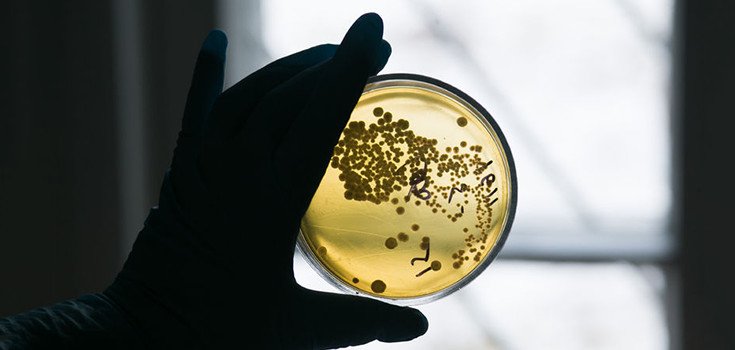Bacteria Resistant to ALL Drugs Found in Canada in OLD Samples

It happened in China, and then moved on to Denmark, then to England. Now, scientists in Canada say they found a mutated gene that causes bacteria to become resistant to ALL antibiotics in 2 samples of ground beef in Ontario in 2010, and in one female patient from Ottawa in 2011.
The Ottawa women who tested positive for bacteria carrying MCR-1 allegedly contracted the bug in Egypt, where she lived for several years. Three days after she returned to Canada, she was hospitalized with an abdominal infection. [1]
The MCR-1 gene found in all 4 countries produces an enzyme that makes bacteria resistant to colistin, a last-line-of-defense antibiotic.
MCR-1 was first reported in China in November in 260 samples of E. coli from meat, animals, and hospital patients. In December, the first reports of the invincible bacteria came out of Denmark, where a patient was diagnosed with an untreatable form of salmonella. Then the mutated gene showed up in bacteria in England on 3 farms and in samples of human infections.
At least a dozen other countries have detected the MCR-1 gene, as well.
While colistin isn’t used in the U.S., that doesn’t mean we aren’t in danger. MCR-1 is located on a plasmid, which is a free-floating slice of DNA that can be easily shared by bacteria, meaning that drug resistance could spread to other organisms. [2]
“It’s clearly the biggest story to come out (in 2015),” said Lance Price, a professor of environmental health at George Washington University who studies antibiotic resistance. “There have been horrible things all year but this is the most disturbing.”
Matthew Gilmour, the scientific director of Winnipeg lab, said scientists are working to identify the drug-resistant bacteria in past cases, and his lab will now screen for MCR-1 and has created tests that will be sent to provincial labs so they can do the same.
Gilmour said he isn’t aware of any current cases, but is concerned that it will show up in cases involving infections that are resistant to all antibiotics, including colistin.
Colistin is rarely used on humans because of its toxicity, but the World Health Organization has said that it is vital to human medicine.
“You might have nothing available to treat an infection. That is the big worry,” he said.
Dr. Michael Mulvey, Public Health Agency of Canada’s (PHAC) Chief of the Antimicrobial Resistance and Nosocomial Infections, wrote in a case report slated for future publication in The Lancet:
“To see it show up was a surprise for me. It supports that there’s global dissemination of this gene already … we’re now going to have to look back even prior to (2010), because maybe it’s been around for even longer.” [3]
Colistin is part of a group of antibiotics called polymyxins. The drugs are often unnecessarily given to farm animals to promote growth and prevent disease.
Humans are given antibiotics far too frequently, and for illnesses that don’t require antibiotic intervention. Viruses, for example, are not affected by antibiotics. In addition, many infections clear up on their own without any drugs. But far too often, we run to our doctor’s office looking for a quick fix for whatever ails us.
Bacteria are naturally equipped to resist antibiotics, but the overuse and misuse of the drugs has forced bacteria to evolve more quickly. Bacteria not killed by antibiotics survive and reproduce, and then spread.
Sources:
[2] The Star
[3] Tech Times
